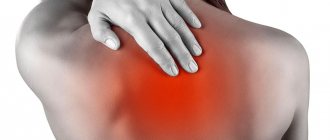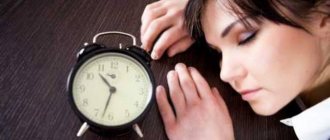Sometimes after a cup of coffee you feel sick. The concept of “bad” is different for everyone - you may feel weak, something similar to panic attacks, abdominal pain or indigestion, tachycardia, dizziness, etc. This can happen to people with chronic diseases as well as to those who appear to be healthy. Some people know about this peculiarity, while others suddenly feel ill after drinking coffee. In any case, you need to know what symptoms may be associated with the problem and what to do about them.
In what situations can you feel sick after drinking coffee?
Most often, things get worse from an overdose of coffee. At the same time, it is not at all necessary that you really drank a lot of it, especially since “a lot” is a relative concept, and we can only talk about the amount of caffeine that the body cannot handle at the moment. Here is just an approximate list of diseases and situations in which even one cup of coffee can make you feel bad:
- Vegetative-vascular dystonia;
- Chronic cardiovascular diseases;
- Tachycardia and arrhythmia;
- High blood pressure;
- Diseases of the gastrointestinal tract;
- Stress;
- State of lack of sleep;
- Illness or weakness of the body.
Most often, things get worse if you drink coffee on an empty stomach, especially if your body is weakened.
Sensitivity to caffeine alkaloid
The body's reaction to drinking an invigorating drink is individual. For many people, even a small amount of coffee can cause arrhythmia, headaches, and a general deterioration in well-being. If dizziness occurs after coffee, then it is best to avoid it.
Whether unpleasant discomfort can develop depends on several factors:
- weight is less than normal, the patient will feel the effect of coffee much faster;
- systematic use of an alkaloid leads to an increase in dosage (the harm to the body will be greater);
- It is strictly prohibited to combine caffeine and certain drugs; there is a risk of adverse reactions;
- if the patient rarely consumes invigorating drinks, then the pressure may rise sharply, but this is a short-term phenomenon that quickly passes;
- Stress, anxiety, depression are the main reasons for giving up coffee.
For a full night's rest, a person needs about 7-8 hours. Stimulant drinks in large dosages cause insomnia, which can lead to problems with memory and the nervous system. This is why you should drink coffee 8 hours before going to bed.
Why can you feel sick after drinking coffee?
Caffeine mainly affects three main systems of the body: the brain, heart and blood vessels, as well as the stomach and intestines. Let's look at why it might be bad in each case.
Coffee hurts or makes you dizzy
Caffeine affects the blood vessels of the brain, narrowing them and blocking the production of adenosine, which dilates the blood vessels, maintaining them normal. If the vessels are compressed strongly and sharply, the head begins to feel dizzy from the lack of oxygen and blood, and a headache is felt.
Heart hurts, tachycardia from coffee
Caffeine stimulates the pituitary gland, which in turn releases hormones into the blood that affect the adrenal glands. The adrenal glands produce adrenaline, and therefore the pupils dilate, the pulse quickens, and tachycardia appears. The heart must pump blood faster, and all blood vessels are narrowed.
Nausea, diarrhea after coffee
Coffee, especially with grounds, actively irritates the walls of the gastrointestinal tract, stimulates the production of gastric juice and peristalsis. Symptoms such as nausea, stomach pain, abdominal pain may be felt, and quite often coffee can act as a laxative.
Diagnosis and treatment
Understanding what vertigo is, you need to know what to do if you feel dizzy. Initially, the cause of systemic dizziness should be established. To do this, checks of the functioning of the vestibular apparatus and examination of the brain are carried out using hardware methods. This allows you to determine the location of the lesions. After this, additional diagnostic methods are selected that allow you to understand exactly what is causing your dizziness.
Treatment is individualized based on the identified cause and severity of symptoms. During acute attacks, it is necessary to create maximum rest for the patient. The use of antiemetic drugs and suppressants that suppress the activity of vestibular neurons is indicated. The complex treatment of dizziness necessarily includes special gymnastics, massage and physiotherapeutic procedures.
Is coffee from a coffee shop bad or homemade?
Those who buy a regular glass of coffee from their favorite coffee shop are much less likely to suffer from poor health after drinking coffee. It uses a coffee machine and a standard recipe, meaning the caffeine content in your favorite latte will almost always be the same. At risk are lovers of natural coffee who prepare the drink themselves, in a Turkish coffee, and usually calculate the dosage only approximately.
- First, it could be a new variety that has more caffeine, or a blend with a higher Arabica content. The point is that in the usual dose, for example, a spoon per cup, you will get more caffeine, but the body is not used to this.
- Secondly, it is difficult to calculate the number of grams - they use different spoons at home, and the slide can be larger or smaller. And if you grind the beans before cooking, it is even more difficult to calculate the amount, and it turns out that there is more ground coffee in a Turk.
- Thirdly, a lot depends on how the drink was prepared. If it was simmered over low heat, and then stood in a pot for a while along with the grounds, the concentration of caffeine in it will be much higher than if you cook it relatively quickly and pour it through a filter or strain the grounds.
Even slightly exceeding the usual dosage of caffeine can cause a person to feel unwell. However, this feeling usually passes fairly quickly.
Bad from instant coffee
Instant coffee more often than natural coffee causes stomach pain, weakness, nausea, and sometimes you may feel cold sweat. And in this case, it’s not just about caffeine, although there is usually more of it, but also about all the chemical additives. The share of natural grain in soluble powder or granules is 15-20%, everything else is dyes, stabilizers, preservatives, volume powders, etc. The body reacts to such a “chemical attack” much stronger.
Hypertension and caffeine
According to the expert, taking caffeine or other caffeine-like products to people suffering from hypertension can cause irritation and severe headaches. Heart palpitations may also occur. This all happens because there is no universal pressure, and each body reacts to caffeine differently. People suffering from hypertension should be careful not only with coffee, but also with painkillers, which often contain caffeine. This is an important issue, especially for headaches, which are treated with the right dose of coffee.
You can adapt to caffeine and thus become resistant to it. Moreover, drinking five or even six cups of coffee daily, caffeine can cause the opposite reaction to the desired one, that is, cause drowsiness, says Andrzej Rutkowski. Excess of this substance can sometimes make headaches worse. According to the specialist, we are talking about the depletion of certain receptors, which leads to the so-called paradoxical effect.
According to Caffeineinformer.com, a website devoted to the effects of caffeine on the human body, coffee headaches have their own distinctive signature. The soreness begins behind the eyes and moves toward the forehead, and as it progresses, it can cause severe migraines. Such illnesses can occur in people who undergo caffeine detoxification, drink excessive amounts of coffee, or, paradoxically, do not drink their daily dose of caffeine.
Coffee and blood pressure
If you are hypertensive and your blood pressure is fluctuating, you absolutely need to monitor its normal level. Coffee can cause sudden surges in blood pressure, which can lead not only to health problems, but also to death, which is why it is so important to monitor blood pressure readings. Tonometers will help you with this, which you can buy on the website of our online store Orthosalon or in the Medtechnika Orthosalon chain of stores in your city.
There are several types of tonometers:
- Mechanical;
- Semi-automatic;
- Automatic.
With the help of a tonometer, you can always monitor your blood pressure in a timely manner and take measures to normalize it. In addition to the mechanical one, in our Medical Equipment store in Kharkov, Kiev, Dnepr, Odessa, Lvov and other cities of Ukraine, you can also choose and buy an automatic tonometer, which is an innovative means of measuring pressure and has a number of wide and useful functions, such as: measurement heart rate, calculation of the average value of the results, voice guidance, date and time display and many others. We work only with the world's leading brands, so we confidently guarantee you the quality of the products we provide. If you decide to buy a tonometer, it’s time to visit Medtekhnika Orthosalon.
What to do if you feel sick from coffee?
If every time you drink coffee you feel bad, you should either seriously reduce the dose, or try decaffeinated coffee, or maybe even give it up altogether. But usually it happens bad once, almost by accident, and in this case there is no need to panic: usually everything goes away in about 15-20 minutes. If you feel nauseous, you can try to get rid of the drink you drank; if not, there are ways to help your body return to normal faster:
- If you feel weakness, dizziness, tachycardia, pain in the head, it is advisable to sit down or lie down, ensure an influx of oxygen, perhaps raise your legs above your head so that oxygen flows to the brain. If it's freezing, you can wrap yourself up.
- If there is pain in the heart, increased excitability, pain in the temples, rapid pulse, fever, provide access to air and try to do a few physical exercises, just to speed up the metabolism and the caffeine is processed faster.
In any case, it is good to drink water, you can eat a banana, drink milk. Lemon water may help. Possibly sedatives for the heart and blood vessels.
How to get rid of headaches after coffee?
If you have a headache after drinking coffee, don’t rush to take your pills. There are traditional methods that will help you get rid of headaches after coffee at home. If you can't give up your favorite drink, try to follow these tips:
- Drink plenty of still mineral water;
- Enrich your diet with fruits and vegetables. They contain vitamins and minerals that strengthen the nervous system;
- Replace classic black or green tea with any tea of herbal origin (chamomile, lemon balm, mint, thyme);
- Take care of long and high-quality sleep, which should be at least eight hours;
- Try to get more rest;
- When taking any medications, make sure that they do not contain caffeine.
Caffeine for medicinal purposes
Oddly enough, in addition to harm, caffeine can also bring benefits. Many people consider caffeine not only a stimulant, but also a pain reliever. And this is justified. There are over-the-counter medications on the market that contain a combination of paracetamol and caffeine. Caffeine complements the analgesic and antipyretic effects of the drug due to its anti-inflammatory, antioxidant and immune response activating properties. Therefore, this combination can be used even for colds and flu. According to one drug manufacturer, caffeine increases the pain-relieving effect of paracetamol by 66 percent and speeds up the onset of its work. The drug is also recommended for the treatment of migraines, which it often treats just as well as strong medications prescribed by doctors to treat extremely intense headaches.
According to Andrzej Rutkowski, other similar methods of combating migraines are known, for example, to get rid of aching pain, just drink a cup of coffee with a slice of lemon. Apart from providing the right dose of caffeine, the citrus will also boost your vitamin C levels. Other pain-relieving coffee recipes are known, such as coffee with cardamom and ginger. These coffee drinks are also good for colds because they have a warming effect. However, remember that coffee is not for everyone. Before using such products, be sure to consult your doctor.
Conclusions:
- Even a completely healthy person can feel ill after drinking coffee. If this happens once, there is nothing wrong with it.
- Coffee brewed in Turkish coffee may make you feel worse if you do not calculate the dosage or allow the drink to brew with grounds.
- Instant coffee makes you feel sick because it contains a lot of chemical additives that can cause an individual reaction.
- Most often, coffee makes you sick if the body is weakened, the person did not get enough sleep, or drank too much coffee.
- If you feel sick, drink water or milk to neutralize the caffeine.
The effect of caffeine on the human body
The invigorating drink is saturated with a substance such as caffeine, which has a tonic effect on the human body. Abuse of this “drug” can lead to addiction. But the surge of energy after drinking coffee is short-lived and can cause unpleasant discomfort.
The effect of an invigorating drink on the body:
- the head becomes clear, thoughts are clear and not confused;
- a good appetite appears;
- the air is inhaled deeply;
- you feel a surge of energy.
The alkaloid caffeine has a direct effect on the receptors of the “gray matter”. It stimulates brain activity, improves impulse transmission and attention. A person’s stupor and drowsiness disappear, he is charged with incredible energy.
Coffee can act for several hours. Then the alkaloid content in the blood decreases, and the patient may again feel overwhelmed and tired.
The effect of an invigorating drink on blood vessels is to improve their tone, accelerate blood flow, increasing the heart rate and pulse, which in turn increases the content of oxygen and nutrients in organs and tissues.
But this condition is not observed in all people. Some people feel nauseous and dizzy after drinking a cup of coffee. Weakness, drowsiness, incredible fatigue, and a desire to rest appear. This is explained by the reaction of a particular organism to the alkaloid.
What exactly should you do if you feel sick after a cup of coffee?
- Lie down, taking a horizontal position, but keeping your head higher than your body.
- Unbutton the collar of your shirt or blouse.
- Provide a flow of fresh air into the room.
- Reduce noise pollution (turn off TV, music).
- Drink some cool water.
- If the condition worsens, call an ambulance.
When buying coffee, you need to pay attention to the manufacturer, its reputation, and the availability of detailed information about the product. Often, in order to save money, the manufacturer dilutes the grains with other ingredients. No one is surprised by cereals or chicory, but the product may contain other substances that provoke a deterioration in well-being. That is why after coffee the condition of a person who is accustomed to the drink and drinks it regularly at home or in a cafe can change.
If an invigorating drink regularly causes changes in your well-being, it is better to give up the drink altogether or try drinking it with milk and without sugar. An alternative can be natural decaffeinated coffee or its analogue - chicory.
Hypertensive patients, people with diabetes, and pregnant women should not drink coffee. These people are at risk for the occurrence of pathological conditions. You need to take care of your health at any age, and it’s easy to give up coffee in favor of healthy green tea, herbal teas or homemade herbal and berry teas.








